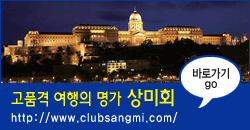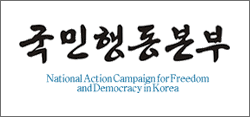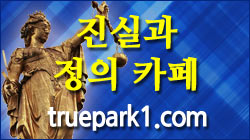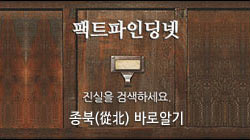by Kim Pyung-woo (Attorney and Former Head of Korea Bar Association)
A state of emergency has persisted for over a month after the National Assembly passed a bill to impeach President Park Geun-hye on December 9, 2016 resulting in the suspension of her authority and prompting the prime minister to serve as acting president. The focus of the entire nation is on the Constitutional Court, which is deliberating the impeachment bill.
The streets surrounding the Constitutional Court are said to be filled with reporters. And especially on weekends, thousands to tens of thousands of protesters converge around the court chanting slogans demanding that the judges rule in favor of impeachment as soon as possible.
In the case of a demonstration that supports or opposes impeachment, the government cannot comment on the contents of the demonstration itself, because freedom of speech, whether involving an individual or group, is protected by the Constitution. However, the time, place, and manner of expression are not free. They are restricted by law. In particular, protests surrounding government buildings and public roads must be approved by the government in advance.
Moreover, expressions of speech targeting the trial, that is to say the judiciary, are subject to more stringent restrictions, because the court is the final process of deciding on truth and justice. There is a clear distinction with politics, which deals with the well-being of the people and the nation. The judiciary is an area to which the political principles of democracy are not applicable. First of all, unlike politics, the principle of majority rule does not apply to justice.
It is not like politics, in which a view becomes unconditional justice if two-thirds of the members of parliament agree. It is not a place where public opinion is used to make a judgment. It is not a system that rules in favor of presidential impeachment simply because all of the biased news media support it. It is a system that confirms truth and justice by precedence, evidence and the morality of the judges.
Therefore, the National Assembly should not interfere with the judiciary. The government should not try to control it. This is because such practices violate the principle of separation of the three branches of government according to the Constitution. This is clear to everyone. However, as far as the judicial system is concerned, the public should not intervene. The parties involved in the impeachment trial are the National Assembly and the president. Whether they support the National Assembly or the presidential, members of the public should not converge around the court and cheer like spectators watching a sports match. The court is not a sports stadium. The news media should not disseminate any reports that predict the outcome of the trial. As the Korean media has been doing over the last few months, journalists should not act like police investigators or judges. Reporters must not act try to lead the Constitutional Court judges, treating the justices like ignorant people in need of guidance. Everyone should step back and wait for the judiciary to arrive at an independent, impartial and fair ruling.
Let me stress again that what is needed most by the Constitutional Court is to ensure fairness in the impeachment trial process. Of course, it is also important to ensure a prompt trial so that political anxiety and confusion are not amplified. But the most important thing for the Constitutional Court is not speed. The Constitutional Court is not required to place priority on minimizing the confusion and anxiety the central government is experiencing due to the impeachment. That is the job of the National Assembly, the news media and the public. The Constitutional Court justices are not responsible for such matters, since they are not politicians. If the Constitutional Court judges place priority on such matters, the court would have lost track of its mission.
In that case, the rule of law in our country would completely collapse. We will end up becoming just like China and North Korea. The fairness of the trial would be destroyed if we allow massive protests to continue around the court house. It is impossible to prove that fairness has been breached, since it is intangible. But if intangible psychological pressure is exerted on the Constitutional Court judges in terms of time, place and method, that would constitute an invasion or threat to the impartiality of the justices.
Therefore, the government should prohibit any demonstrations taking place around the Constitutional Court. At least areas of Seongbuk-gu, Jongno-gu, and Jung-gu, Seoul, that are adjacent to the Constitutional Court should not be authorized to stage any form of individual or collective demonstration against the impeachment trial during the impeachment proceedings of the Constitutional Court. Such acts should be prohibited. This constitutes freedom of the press that complies with the Constitution. Permitting demonstrations or looking the other way in the name of freedom of speech is against the law and tantamount to dereliction of duty.
If the government does not stop it, the Constitutional Court should take matters into its own hands. A lack of action by the Constitutional Court could be misunderstood as the court abandoning the constitutional demands of a fair trial.
There is a procedure in litigation law called transfer. This is a system allowing a trial to be transferred to another court if a fair trial cannot be ensured. For example, if the judge rules that it is too difficult to hold the trial in Seoul due to the intensity of the demonstrations, the case is sent to a court in another district. There have been hardly any instances like this, but they are quite common in foreign countries, such as the U.S. (of course this is due to the uniqueness of the jury system). However, the Constitution Court does not have an alternative. It is the only court of its kind in Korea.
Then what? I know there is a spokesperson and public affairs official at the Constitutional Court. A request must be made through the spokesperson or public affairs official calling for the restraint or suspension of all demonstrations in the name of the presiding judge and all of the justices of the Constitutional Court. If the government does not take action, the court should warn that it will halt the impeachment trial. This is something the court should have done a while ago.
If the Constitutional Court calls for a speedy trial without taking such minimum of steps, the court could end up becoming the target of suspicion that it succumbed to the demands of the protesters and made a politically-motivated ruling, regardless of the true intentions of the judges. It will be extremely difficult to offer an explanation.
I am worried that the brilliant reputation and status of the Constitutional Court, which has been established by its judges, will become tarnished. No, I am worried that the rule of law in this country will completely collapse.
I am confident that the Constitutional Court justices will deal with the matter. But I am simply making a suggestions as a veteran lawyer due to concerns that the court may be leaving a impression that it is more interested in wrapping up the trial quickly than on ensuring the fairness of the trial.
Jan. 16, 2017
헌재 所長(소장)의 이름으로, 아니 헌재 재판관 전원의 이름으로 헌재 주변에서 일어나는 탄핵재판에 관련한 모든 시위의 제한·중지를 요청하여야 한다. 만일 정부가 조치하지 않으면 헌법재판의 심리를 중단하겠다고 경고하고 실제로 심리를 중단하여야 한다.
2016. 12. 9. 국회가 朴 대통령을 상대로 헌법재판소에 탄핵소추를 제기하여 대통령의 직무가 정지되고 국무총리가 대통령의 권한을 대행하는 권한대행체제, 즉 국가비상사태가 한 달 넘게 계속되고 있다. 국민들의 모든 관심은 헌재의 탄핵심리, 판결에 쏠려 있다.
헌법재판소가 있는 서울 종로구 주위는 온통 보도진들이 메우고 있다 한다. 그런데, 매일 같이, 특히 주말에는 수천 수만의 시위대가 헌재 주변에 몰려가 구호를 외치고, 시위를 하여 헌재가 하루 빨리 탄핵을 인용하라는 압력 데모를 하고 있다 한다.
탄핵을 지지한다, 반대한다 하는 데모의 경우, 데모의 내용 그 자체는 개인이 하든 또는 집단이 하든 헌법상 보호되는 언론의 자유에 속하므로 정부가 뭐라고 할 수 없을 것이다. 그러나 내용이 아니라 의사표시의 시간, 장소, 방법(time, place, manner)은 자유가 아니다. 법의 제한을 받는다. 특히 정부의 공공건물 주변이나, 공공도로는 사전에 정부의 허가를 받아야 한다.
더군다나 재판, 즉 司法(사법)에 대한 의사표시는 보다 엄격한 제한을 받는다. 왜냐하면 司法이라는 것은 나라의 진실과 정의를 마지막으로 판가름하는 절차이기 때문이다. 국민의 복지와 국가의 안위를 다루는 정치와는 확연히 구별된다. 민주주의의 정치원리가 적용되는 분야가 아니다. 우선 사법에는 정치와 달리 다수결의 원리가 적용되지 아니한다.
정치처럼 국회의원의 3분의 2가 찬성하면 무조건 정의가 되는 그런 시스템이 아니다. 여론조사로 재판하는 곳이 아니다. 언론이 모두 지지하니까 탄핵을 인용하는 그런 시스템이 아니다. 오직, 선례, 증거, 법관의 양심으로 진실과 정의를 확인하는 시스템이다.
따라서, 司法에 대하여는 국회가 간섭하면 안 된다. 정부가 통제하려 하면 안 된다. 이는 헌법상의 삼권분립 원칙에 어긋나므로 당연히 안 되는 것이다. 여기까지는 누구나 다 알 거다. 그러나, 사법에 관한 한은 국민도 간섭하면 안 된다. 사건의 당사자는 어디까지나 국회와 대통령이다. 국회 편이든, 대통령 편이든 법정 주변으로 몰려가서 축구 경기장의 관중들처럼 응원하는 건 안 된다. 司法은 스포츠가 아니다. 언론도 재판을 예단시키는 어떤 보도를 하면 안 된다. 우리나라 언론이 지난 몇 달간 해온 것처럼 수사기관이나 재판기관 노릇을 하면 안 된다. 마치 무지한 국민을 데리고 노는 것처럼 헌재 재판관들을 先導(선도) 즉, 앞서서 끌고 가려 하면 안 된다. 모두들 뒤로 물러서서 사법이 독립하여 중립적으로, 공정하게 판결하도록 기다려 주어야 한다.
다시 한 번 강조하는데, 지금 헌재에게 가장 필요한 것은 탄핵 심판 절차의 공정성이다. 물론, 신속하게 재판해서 정치적 불안, 혼란 상태를 정리하는 것도 중요하다. 그러나 헌재에게 가장 중요한 것은 신속성이 아니다. 국정의 혼란, 불안을 제거하는 것이 헌재의 목적이나 사명이 아니다. 그것은 국회, 언론, 국민에게 맡겨야 한다. 헌재 재판관들이 정치인들처럼 그런 것까지 책임질 의무는 없다. 만일에 헌재 재판관들이 그런 것을 우선 한다면 헌재는 본연의 사명을 잊은 것이다.
그러면 이 나라의 법치주의가 완전히 무너진다. 우리나라는 북한이나 중국처럼 된다. 요컨대, 지금 헌재 주위를 둘러싸고 집단들이 몰려가 구호를 외치고, 촛불을 드는 이 위법 사태를 방치하면 헌재의 공정성이 무너진다. 공정성이란 무형의 것이므로 누구도 공정성이 침해되었다는 것을 증명할 수는 없다. 그러나 시간, 장소, 방법에 비추어 헌재 재판관에게 무형의 심리적 압력이 되면 이것은 헌재의 공정성에 대한 침해·위협이다.
따라서 정부는 헌재 주변에서 일어나는 여하한 시위나 데모도 금지시켜야 한다. 적어도 헌재에 인접한 서울 성북구, 종로구, 중구의 지역은 헌재의 탄핵사건 심판기간 중에는 탄핵재판에 관한 여하한 형태의 개인·집단 시위도 허가하면 안 된다. 금지시켜야 한다. 이것이 헌법에 맞는 언론의 자유이다. 언론의 자유라는 미명하에 시위를 허가·방치하는 것은 위법한 직무수행, 즉 직무유기이다.
만일 정부가 막지 않으면 헌재 스스로 자구책을 찾아야 한다. 아무런 조치나 노력도 안하고 방관만 한다면 이는 헌재 스스로가 공정한 재판의 헌법적 요청을 포기하는 것으로 오해를 받는다.
소송법에는 移送(이송)이란 제도가 있다. 공정한 재판을 하기가 어려운 사정이 있을 때, 관할 법원을 다른 법원으로 옮기는 제도이다. 예컨대, 서울에서 재판을 하는데 데모가 너무 심해 재판이 어렵다고 판단하면 다른 지역의 법원에서 재판하도록 사건을 보내는 제도이다. 한국에서는 이런 경우가 거의 없지만, 미국 등 외국에서는 꽤 많이 있다(물론 배심제도의 특수성 때문이기도 하지만). 그러나 헌재는 이송할 법원이 없다. 한국의 유일한 단심 법원이다.
그러면 어찌할 것인가? 헌재에도 대변인이 있고 공보관은 있는 것으로 안다. 그러면 이 대변인·공보관을 통해서, 헌재 소장의 이름으로 아니 헌재 재판관 전원의 이름으로 헌재 주변에서 일어나는 탄핵재판에 관련한 모든 시위의 제한·중지를 요청하여야 한다. 만일 정부가 조치하지 않으면 헌법재판의 심리를 중단하겠다고 경고하고 실제로 심리를 중단하여야 한다. 진작에 했어야 할 조치이다.
만일 헌재가 이러한 최소한의 조치도 취하지 않고 오직 심판 일정만 다그친다면, 헌재 재판관들의 진정한 의도나 의사와 관계없이, 헌재는 시위대의 압력에 굴복하여 정치적 재판을 하였구나라고 불신을 받을 것이고 그 경우 마땅히 변명할 길이 없을지 모른다.
그렇게 되면, 초대 曺圭光(조규광) 소장님부터 李康國(이강국) 소장님에 이르기까지 역대 헌재 재판관들이 쌓아온 헌재의 빛나는 위상이 하루아침에 무너져 내릴까 걱정이다. 아니, 이 나라 법치주의가 완전히 무너져 버릴까 우려된다.
물론 헌법재판소 재판관들이 다 알아서 하실 줄 믿는다. 하지만 헌재가 본격적인 재판을 시작하면서 재판 일정만 서두르고 재판의 모양새 특히, 재판의 생명인 공정성 확보의 외관을 만드는 데에는 소홀한 것으로 보여 원로 법조인의 입장에서 한 마디 衷言(충언)한다.
(2017.1.16.)












 Kim Pyung-woo
Kim Pyung-woo







 트위터
트위터 페이스북
페이스북 네이버
네이버




























